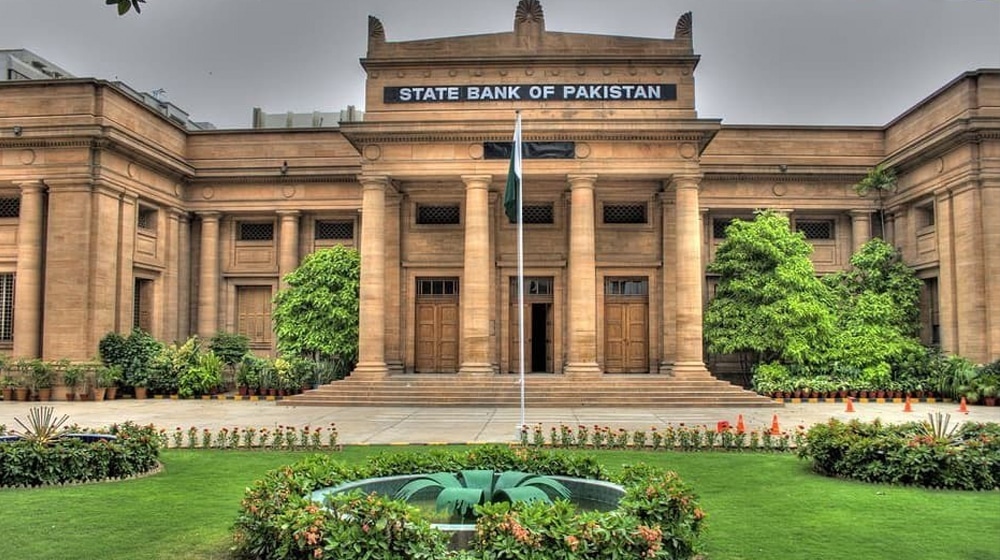While talks with the International Monetary Fund (IMF) and Rupee volatility took center stage, much of the action was unfolding in the money markets.
According to Tresmark, a policy rate hike is imminent this week. The majority of traders have placed their bets on a 200 bps increase, especially with the current inflation trend and further upticks due to the tax, fuel, and energy prices hike.
In the money markets, yields have increased by about 100 basis points in the shorter tenors, and Banks, in spite of being long and liquid, did not bid aggressively in the latest auction which was finally scrapped. The State Bank of Pakistan (SBP) too did not inject any funds through OMO, a practice which it regularly has been doing to encourage funding of investment in bonds.
Decoupling of dollars
A 2 percent hike would take the policy rate to 19 percent, the highest since 1996, and pose a mouth-watering dilemma to dollar holders and exporters holding back their proceeds.
Tresmark added that the carrying cost of dollars suddenly stops being feasible! But this huge hike will also stir the hornet’s nest in which businesses, with a dramatic slowdown in the economy and imports, may not be able to service their debt. But it seems that the stage is set to prioritize inflation versus economic well-being.
Rupee on the surge
After enduring the worst week in which the Rupee traded as low as 278.50/$ (intraday), it displayed a remarkable resurgence, making an intraday high of 262.25/$ yesterday. One key factor to this reversal was SBP’s circular which effectively discourages exporters from parking their forex outside Pakistan beyond the stipulated time.
While the circular comes into effect on 1st March, most exporters do not want to wait till then and sold their export proceeds and forward inflows in the market, with some, even aggressively discounting their future bills. This reversal of the Rupee in the interbank market has also impacted retail speculators who have been busy selling with fewer and fewer buyers.
This unexpected inflow from exporters and speculators has come as a delight to the Central Bank which has been busy buying the excess liquidity to shore up their reserves while at the same time letting USD/PKR drift lower. While SBP’s reserves are bound to increase in the week ending 17th February, no one is sure why the reserves went up in the week ending February 10th. The country’s overall reserves went up by $163 million.
Outlook
Tresmark in its report said,
“While the Rupee should stay in the 262-265 range for now, there will surely be some outruns to levels below 260. These outruns are not expected to stay beyond the 2-week time frame. The 2 key reasons for this view are that SBP is still holding off imports and new LC issuance, to the detriment of industries and the IMF, and sooner than later they will have to resume near-normal operations. The other reason is that SBP is buying the excess dollars off the market and they will have to support the market at some level to optimize maximum mop-ups.”
IMF question still lingers
Analysts are frustrated that in spite of material, ‘prior actions’ the IMF has not issued any positive progress statement. The MoF has also tabled the mini-budget which is expected to be approved early next week. They (analysts) question what is holding the Fund back.
The China factor
To answer this, the case for Sri Lanka is imperative, where despite material reforms, IMF has not approved a bailout package. IMF wanted assurances from bilateral sources to support financing and debt relief. And no one should be surprised that China has been quiet on this, failing to bail Sri Lanka out. Pakistan has already paid a massive $2.5 billion (approximately) to China in the last 6 months and without China’s (unlikely) support, the IMF will be reluctant to dish out money.
For China, the problem is that any relaxation it grants to Pakistan or Sri Lanka, the same will be expected by other debt-ridden nations. However, in the case of Pakistan, there is no haircut or restructuring on the horizon. Still, the China factor is unpredictable.
In spite of the above, most traders believe the IMF approval will come but perhaps later than market expectations. While the IMF question lingers, analysts also point to the increased political uncertainty in the country, which can easily upset the apple cart.























When state bank increases interest rates what bars national saving directorate not to increase profit/ grant on deposit rate for Behbood,Pensioners& shuhada funds as all the depositors are equally hit by inflation.
Is it due to pressure by SBP or the bankers heads pressing the directorate
Retired people and senior citizens are equally affected by inflation then why profit rate of behbood, pensioner and investment on SSC and DSC are not raised. My humbled request to Finance ministry to looks in to it
Invest in money market mutual fund then